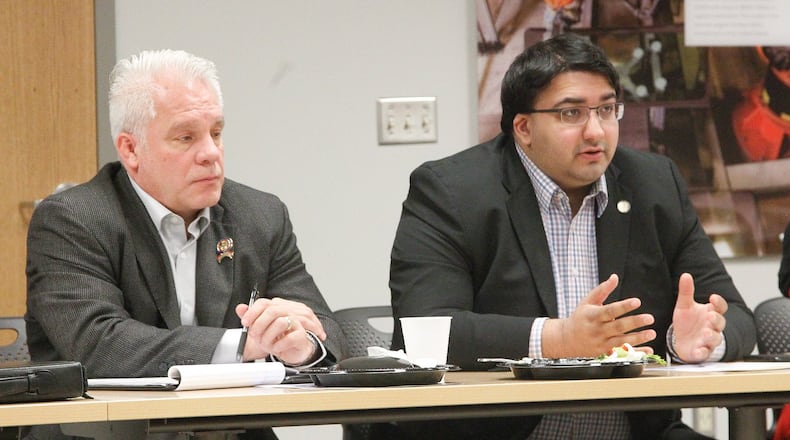Ohio counties paid 55 percent of the $146 million spent last year on the constitutionally-mandated legal fees.
A 1963 U.S. Supreme Court Case, Gideon v. Wainwright, ruled the Fourteenth Amendment right to legal counsel is “obligatory upon the states.”
MORE: Teen crime, thefts and drugs top concerns for area police chiefs
In response to the court case, Ohio initiated a system that reimbursed counties for 50 percent of the cost of indigent defense. Over the years the percentage the state reimburses has waned, now hovering statewide between 43 and 45 percent range, said John Leutz, legislative counsel for the County Commissioners Association of Ohio.
“Our board and membership basically concluded that the most important thing to us for this budget cycle is full funding for our indigent defense expenses,” he said.
About $8.9 million was spent both on public defenders and assigned counsel in Montgomery County during the last fiscal year, according to county records. After a state reimbursement of 40.4 percent, the net cost to the county for indigent defense worked out to nearly $5.3 million.
MORE: After double-digit drops, Dayton crime rates rise
Leutz and county commissioners argued for more public defender funds at a meeting in Dayton last week attended by state representatives Niraj Antani, R-Miamisburg, and Phil Plummer, R-Dayton.
Plummer agrees more money for indigent defense is needed and what’s budgeted is often stretched thin.
“I see the need because of my experience in the system,” said Plummer, the former Montgomery County sheriff. “A lot of times we see lawyers don’t get to see the clients enough. We get a lot of plea bargain cases. That’s just not good justice. One of the biggest complaints we had in the jail is, ‘I never get to talk to my public defender.’”
Ohio Gov. Mike DeWine’s proposed budget provides another $60 million for indigent defense, but is still up to $35 million below what’s needed for full reimbursement, Leutz said.
Antani said he recognizes the right to due process and defense counsel, but believes Montgomery County, which last year enacted a 0.25 percent sales tax increase that now generates $19.1 million to cover a $9 million shortfall, is in a position to cover the costs without further reimbursement.
“While we want to provide funding for a constitutional obligation, we also have to look at the budgets of local governments,” Antani said. “Montgomery County already raised their sales tax and are flush with money … We don’t want to give taxpayer dollars to an entity that doesn’t need it.”
The Montgomery County Public Defender’s office handled more than 22,000 cases in 2017, including nearly 2,500 felonies and 14,500 misdemeanors, according to statistics kept by the Ohio Public Defender’s Office. Another 2,000 involved defending juveniles.
Plummer said there must be firm accountability on money spent on indigent defense, but, “we have to pay for it.”
“Citizens deserve a fair shot in court,” he said.
About the Author

